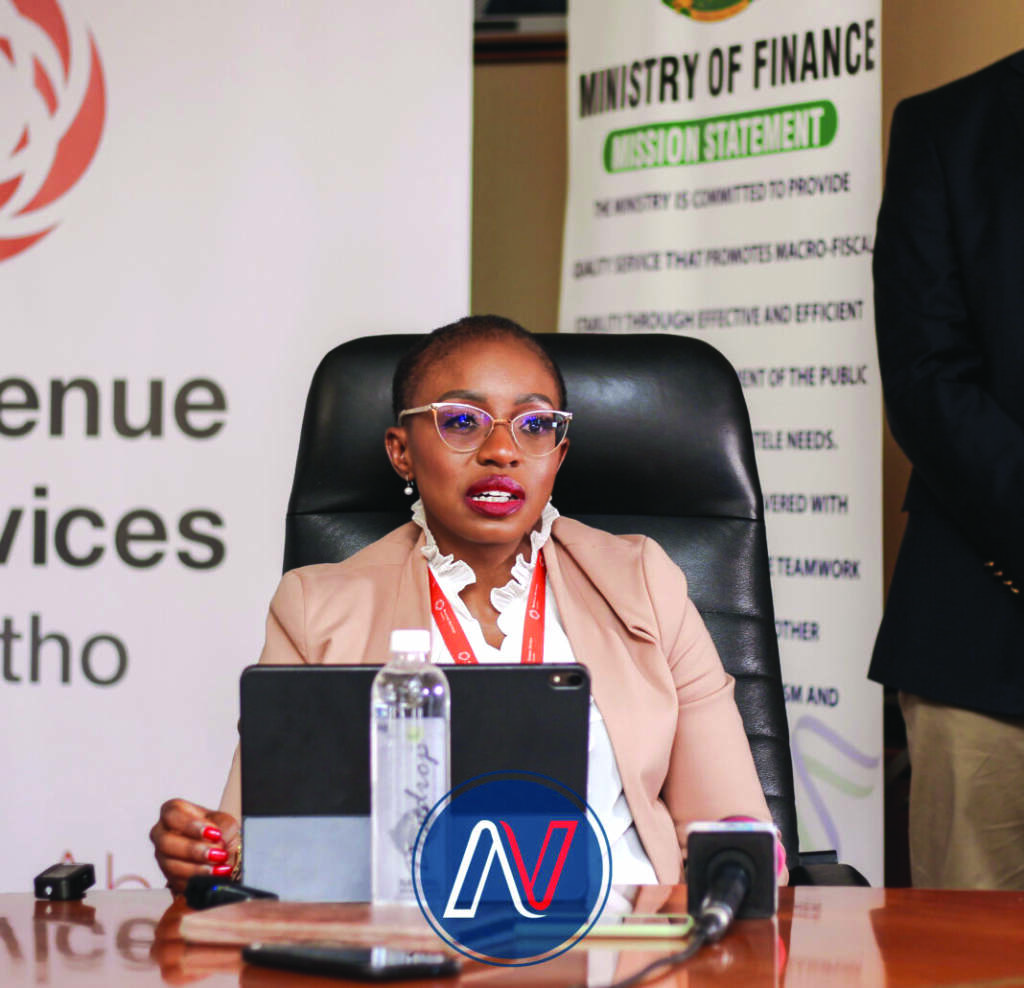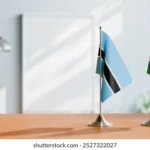Nkopane Mathibeli
For a number of decades after establishment as a nation, Basotho existed in utmost dignity as testified by a lived experience of what later became our national motto, Khotso, Pula, Nala. In turn, this made our forebears a very united, proud and strong nation. Despite being robbed 81.1 percent of their land by the Bloemfontein Convention of 1854, they had by 1873 earned their country the status of being a granary of the Free State and parts of the Cape Colony (Kimberly). This was made possible by the wisdom of its leaders, Basotho’s sheer resilience, dedication and discipline. Unfortunately, a combination of factors later demoted the Kingdom from being a granary to a labour reserve. Prime among them were the rinderpest-induced death of 90 percent of the total cattle population (1896); severe drought (1897) and tariffs on Lesotho grain exports by two Boer republics: Transvaal (1886) and Free State (1893). Due to an increase in labour migration followed by a decline in agriculture, our Kingdom had become a net importer of grain by 1933. It was only from 1970 that Prime Minister Leabua Jonathan’s visionary and virtuous economic leadership began to reinstate Basotho’s dignity and pride. Unfortunately, this programme fizzled into thin air the moment he left office (1986).
It may be true that within his successors’ combined tenure of 39 years (1986 – 2025), milestones can be identified. However, none of them really reinstated the dignity and pride of Basotho because most were conceived and implemented with the next election, not the next generation, in mind. This either made them hollow victories (the textile industry) or unsustainable burdens on the fiscus (free primary education). In passing, I briefly demonstrate this with the issue of free primary education. That students dropped out of school due to their parents’ failure to pay school fees did not make that failure a problem, but a symptom of rampant joblessness. This technically makes free primary education an ill conceived solution of joblessness. Instead, a suitable solution would have been an intensive programme of job creation. As a result of such solutions, it is safe to conclude that Prime Minister Leabua’s successors all demonstrated a lack of requisite vision and virtue. What kind of leader then do we need to reinstate our dignity and pride as a nation?
Back to basics
Only a leader that is informed by and builds upon the basic foundational structure of our Kingdom that can truly reinstate the dignity and pride of Basotho. This has clearly happened in Botswana where the sense of nationhood was born out of the post-independence leadership’s subservience to the electorate. This subservience was Seretse Khama’s conscious imitation of the subservience of the traditional leadership (chieftaincy) to its subjects. Leabua Jonathan did the same thing while at the helm in Lesotho, and his success remains unmatched to date. This success goes a long way to show that it is possible to arrest a country’s underdevelopment only if its development programme is built on that country’s basic foundational structure. Anything else will end in confusion and failure. Here is a very simple example to get this point across. This example is, however, related to cars. If, for example, the engine of a Toyota Hilux seizes up, it needs to be dismantled and rebuilt from scratch. If the rebuilding process is to end with a perfectly functional engine, only spare components specifically made for such an engine must be sought and used. There would be total failure if, instead, spare components of a Ford Ranger were sought and used.
The fixing of nations and countries ought to follow the same logic, failing which, crises become the order of the day. This in itself explains why many African countries are experiencing unending problems since entering the modernisation phase; it is because they are being modernised in the overall image and soul of Europe. It is precisely for this reason that Africa is failing democracy, which is unfortunately interpreted as the failure of democracy in Africa. The solution is straightforward, new systems have to be adapted to the basic foundational structure of an African nation. Lately, this is popularly referred to as decolonisation. The foundation of Prime Minister Leabua’s developmental success was being from the chieftaincy and therefore well aware of this foundational structure. His task was to proceed using it forthright. What is however regrettable is that he never formalised it into what could have easily become our national/State ideology. Although some African countries used to have formal state ideologies (for instance Tanzania had Ujamaa), none were exclusively indigenously rooted but were adaptations of Western political concepts. Before I sum this piece by outlining what could possibly work for our Kingdom, I briefly outline how Indonesians formulated and mainstreamed their own state ideology (The Pancasila) into the DNA of their society. Today, their country has the 17th largest economy in the world and less than nine percent of its population living in poverty.
The Pancasila of Indonesia
Just as was the case with Botswana before Seretse Khama, Indonesia’s numerous tribes (over 1,300) were all independent entities before Sukarno became President (1945). This deprived the territory both a nationhood and central government. In order to unify these inhabitants of Indonesia divided not only by language and ethnicity but also by religion, Sukarno simply took the general foundational structure of every ethnic group as a template to found a single Indonesian nation. The outcome is what he called the Pancasila. This was a collection of five principles on which the constitution of Indonesia was to be founded and has indeed been founded. They are: Belief in the Almighty God; A just and civilised humanity; A unified Indonesia; Citizens led by the wisdom of representative consensus; and Social justice for all Indonesians. These principles are not only part of the preamble of the Indonesian constitution, but they have also been integrated into the Indonesian curriculum from kindergarten to universities. This essentially makes the Pancasila the software of every Indonesian. The Pancasila also serves as a framework for the development of the country. It is so central to national life that even Indonesian academics have written extensively on it. The attitude of Indonesians to their Pancasila has produced very good fruits for their country, as demonstrated by development indicators, including the human development index. Basotho as a nation are older than the Indonesian nation. Unlike both Indonesia and Botswana, whose founding fathers are their first presidents, ours founded it in precolonial times. However, despite the wisdom he employed being public knowledge, nothing similar to the Indonesian Pancasila was formulated in his honour and the transformation of his country. Nothing more than that demonstrates our disregard for our hero. Basotho often talk about se-Moshoeshoe, but nothing as concrete as the Indonesian Pancasila has come out yet.
Se-Moshoeshoe, our Pancasila
On the 26th April 2023, Members of Parliament Mokhothu and Rakuoane submitted a notice of motion proposing the establishment of an Ad hoc Committee to formulate the Moshoeshoe code. The explanation was that the code would emulate the nation-building principles of King Moshoeshoe I. Unfortunately, nothing has come out of this proposal. Probably, the parliamentary majority did not find it worthwhile and that is not surprising. Basotho generally do not have an appreciation of history, how can they appreciate a historical figure like King Moshoeshoe I? It therefore goes without saying that formulating a state ideology using his principles of nation building is definitely not something many people think about much. Unfortunately, our national experience of failure to transit from poverty to prosperity since Leabua’s exit is more than enough proof that we need to go back to our indigenous philosophy of development and nation building.
It is indisputable that the reason why Basotho, unlike the Zulus, Xhosas, Ndebeles and Bapedi maintain their status as a nation as opposed to them being tribes within a nation, is a philosophy that is today taken for granted. This is the philosophy that Mohlomi gave to Moshoeshoe in the form of five pieces of advice. According to Gill in his compacted Short History of Lesotho, these were: take care of the weak and vulnerable (social development policies); do not prosecute witchcraft; share your wealth with your subjects (wealth redistribution policies); enjoy the profits of hard work not the fruits of war (virtuous living/moral uprightness) and; marry many wives (broaden diplomatic footprint). Only a leader that can formulate a national development programme with our indigenous nation building philosophy as a foundation can take over from where Leabua left.
Summary
- For a number of decades after establishment as a nation, Basotho existed in utmost dignity as testified by a lived experience of what later became our national motto, Khotso, Pula, Nala.
- 1 percent of their land by the Bloemfontein Convention of 1854, they had by 1873 earned their country the status of being a granary of the Free State and parts of the Cape Colony (Kimberly).
- This success goes a long way to show that it is possible to arrest a country's underdevelopment only if its development programme is built on that country's basic foundational structure.

Your Trusted Source for News and Insights in Lesotho!
At Newsday Media, we are passionate about delivering accurate, timely, and engaging news and multimedia content to our diverse audience. Founded with the vision of revolutionizing the media landscape in Lesotho, we have grown into a leading hybrid media company that blends traditional journalism with innovative digital platforms.










